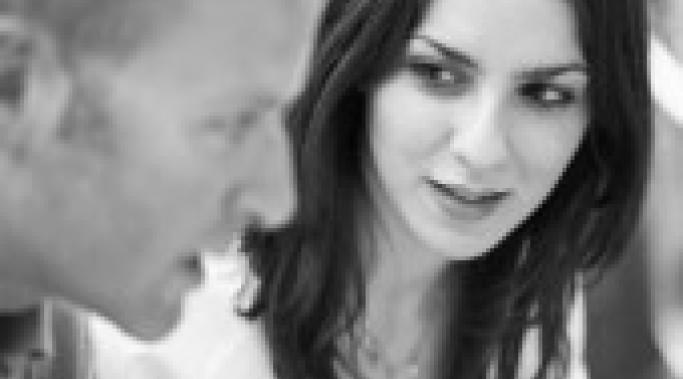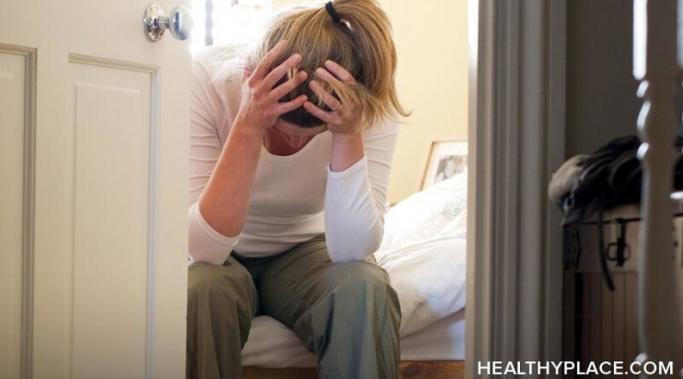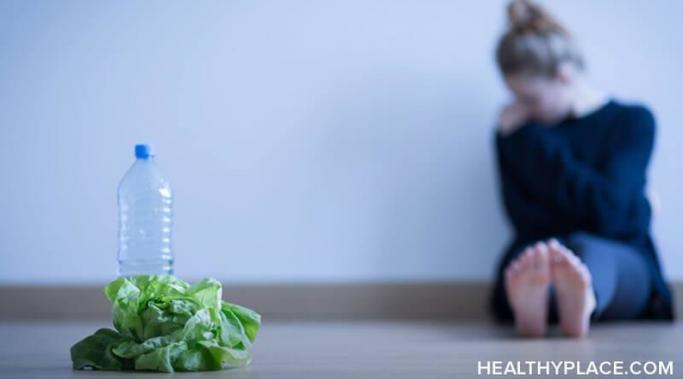In February 2010, I entered inpatient treatment for anorexia nervosa, anxiety, and depression. I felt like a complete failure that this was my sixth inpatient admission, and I vowed that it would be my last admission.
On Monday, I will once again admit myself to the hospital for six days of psychiatric treatment. It was a difficult decision to make, and one that many of us struggling with eating disorders and co-morbid illnesses often face.
Bulimia Treatment
The first step in recovering from any eating disorder is accepting that you do have an illness that deserves and needs treatment.
The next step is finding the appropriate people to guide you in recovering from your eating disorder. That can be very difficult. However, there are different types of help out there and I would encourage you to never give up trying to find what works for you.
For weeks, I have struggled to do anything beyond the bare minimum. Eating disorders are in part coping mechanisms, and can be deceptively helpful in masking painful emotions. That can make recovery from an eating disorder very difficult, because most people struggle with painful emotions and would rather push these feelings aside than face them.
I always like to think I am different - but I am not - and that I can push through the emotions the recovery stirs up. Each time I begin the recovery process with a fierce determination to beat anorexia nervosa for the last time. I feel strong and sure as I start to eat regular meals and snacks and stop all related eating disorder behaviors, and I know in my heart that I will travel the road to full recovery without roadblocks or detours.
But emotions can only be suppressed for so long, and I inevitably become anxious and depressed as I begin to eat like a normal person. Determination fades and strength wavers as all the emotions that I couldn't feel while in the middle of my eating disorder come roaring back, leaving me cowering in the corner.
I recently learned that several friends of mine also are struggling with their eating disorders, and that it hurts even though I also have an eating disorder.
You cannot always tell a person has an eating disorder simply by looking at him or her.
I stressed that because one of the most common and enduring myths about eating disorders is that the person must be young, female, and extremely emaciated to have an eating disorder.
That is simply not true.
My thinness is an outward manifestation of my inner pain that I am unable to voice.
This is my last year of graduate school and I have started working on my thesis. It will be a creative non-fiction piece divided into two parts. One part will be about my struggles with anorexia nervosa, and my ultimate decision to begin the work of recovery in the midst of personal chaos. The other piece will review the memoirs and creative non-fiction writings written by women who have experienced anorexia and/or bulimia.
I deliberately chose to write my thesis about women only, in part because I plan to apply feminist theory to my thesis and I believe that eating disorders develop differently in women and men.
I have been enmeshed in writings about eating disorders these past few weeks, and I have found a common thread throughout the writings that resonate with my own experiences with anorexia.
Silence. At some point, each of these women have written about feeling silenced and having to regain their voices during recovery.
I believe at heart that eating disorders are illnesses of silence, of an inability to speak about inner pain, to give voice to what we are feeling and going through in the deepest reaches of our souls.
A 2008 Harris Interactive study found that about 0.5 percent of Americans are vegan and 3.2 percent of Americans are vegetarians. That equals 1 million and 7.3 million respectively.
That's a pretty low number. Why then does it seem that I know so many people with eating disorders who either are vegan, vegetarian, or practice some other type of eating different from the normal population?
Eating disorders and loneliness. It is not something we speak or write about often. It is painful to think about being lonely. But I believe people with eating disorders are often very lonely. It is the nature of these illnesses. But it doesn't have to be this way. I would like to shine some light into these dark corners of loneliness, and perhaps help other people with eating disorders feel less alone.
PHP IOP NG Tube AN TPN IP AMA . . .
The first time I was hospitalized for anorexia nervosa was in June 2008. I left after 24 hours — AMA. The second time I was hospitalized for treatment my doctor informed me I would need a TPN.
I was totally clueless about the acronyms and terms. It can feel like you are swimming in a vast sea of alphabet soup when you first enter the world of eating disorders treatment.
It was inevitable. The first step in recovery from anorexia nervosa is weight restoration. I knew that I had to gain weight and that it eventually would be noticeable. I often wanted to crawl in a shell like a turtle during the early stages of my weight gain because I felt so different. So much larger. I took up too much space, and I still wanted to hide.
I wasn't entirely comfortable in this new body. However, I slowly grew used to my body with its feminine curves, and several times I would look in the mirror and think how much better I looked than when I was emaciated and skeletal.
But I knew what was coming...
One day I was in the bathroom with a friend. She commented that the new weight looked good on me. Unfortunately, she didn't stop there. She then went on to point out the slight roundness of my stomach, and helpfully suggested I could wear looser clothes if it bothered me.
It hadn't bothered me until then. But this seemingly innocent comment reverberated throughout my mind days afterward.








